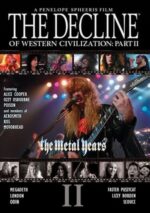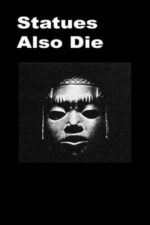Beyond Observation: When Cinema Meets Anthropology
Isn't it fascinating how much we try to understand each other? Not just on a personal level – "Why is my friend in a mood?" – but as a species, across cultures and time? That’s essentially what anthropology grapples with, and surprisingly, cinema has been wrestling with the same questions for over a century. It's more than just documenting; it's about interpreting, questioning, and sometimes even creating culture itself.
Think about the very beginnings of film. The Lumière brothers’ “Le village de Namo” isn't just a charming historical artifact – that sweeping panorama shot is an early attempt at ethnographic observation. It’s capturing a moment in time, a way of life, and presenting it to an audience who likely hadn't seen anything like it before. It’s a snapshot of “otherness,” even if the "other" is just a village down the road.
But what happens when that "otherness" isn't so easily captured? That’s where films like “Statues Also Die” become vital. This documentary, sadly suppressed for years, shines a harsh light on how Western institutions have historically marginalized African art and culture – essentially treating it as an anthropological specimen rather than recognizing its inherent artistic value. It forces us to confront uncomfortable truths about power dynamics and the biases embedded in our systems of knowledge. It's a reminder that anthropology isn’t just about studying them; it's about examining ourselves.
And then you get into the wonderfully bizarre territory of films like “Krippendorf’s Tribe.” It’s a darkly comedic fable about desperation and fabrication, where an anthropologist creates a fictional tribe to salvage his career and connect with his children. It’s a brilliant satire on the lengths we go to for validation, and how easily we can construct narratives – even entire cultures – to fit our needs. I remember seeing this years ago and being completely floored by its audacity!
Of course, anthropology in film isn't always so literal. “Begotten,” with its stark visuals and dreamlike narrative, uses creation myths as a springboard for exploring fundamental human experiences - birth, death, transformation. It’s less about documenting a specific culture and more about tapping into universal archetypes that resonate across all societies.
Even something seemingly frivolous like "The Decline of Western Civilization Part II: The Metal Years" touches on anthropological themes. It's not just about the music; it's about examining a subculture, its rituals (the stage shows!), its language (the lyrics!), and its place within a larger societal context.
Finally, “Iceman” offers a more straightforward exploration – what happens when we encounter something completely outside our understanding of humanity? It’s the classic anthropological question: how do we relate to the radically different?
Cinema's relationship with anthropology is complex and fascinating. It's not always about dusty artifacts and field notes; it’s about questioning, observing, creating, and ultimately, trying to understand what it means to be human – in all our messy, beautiful, and sometimes fabricated glory. What film do you think best embodies this intersection?


































